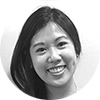Editor interview questions and answers
This Editor interview profile brings together a snapshot of what to look for in candidates with a balanced sample of suitable interview questions.

10 good editor interview questions
- Everyone needs a break. What do you read on your own time?
- How has your work experience prepared you for this position?
- How do you sustain interest in even the most mundane aspects of editing – proofreading, fact-checking, source-checking, etc?
- What social media platforms work well for increasing the reach of your content?
- How much do you know about SEO?
- What publishing platforms have you used before?
- Which style guides do you prefer?
- Describe your experience with creating style guides.
- What advice would you give writers trying to pitch stories to your publication?
- What topics would you want to cover in an editorial calendar from October to December?
Here are 10 essential interview questions and sample answers to help identify the best candidates for this role.
1. Everyone needs a break. What do you read on your own time?
Understanding an editor’s personal reading preferences can offer insights into their broader literary tastes and influences.
Sample answer:
“I enjoy a mix of contemporary fiction and historical non-fiction. Authors like Jhumpa Lahiri and Erik Larson are among my favorites. Their storytelling techniques inspire my editorial approach.”
2. How has your work experience prepared you for this position?
This question delves into the practical experiences that have shaped the candidate’s editorial skills.
Sample answer:
“Having worked in both magazine publishing and online platforms, I’ve gained a holistic understanding of content creation, audience engagement, and the importance of adaptability in the ever-evolving digital landscape.”
3. How do you sustain interest in even the most mundane aspects of editing – proofreading, fact-checking, source-checking, etc?
This helps gauge the candidate’s dedication to the meticulous aspects of the job.
Sample answer:
“I view these tasks as the foundation of a credible publication. Ensuring accuracy and consistency is paramount. Every detail contributes to the larger narrative and the trustworthiness of our content.”
4. What social media platforms work well for increasing the reach of your content?
Understanding the editor’s grasp on digital platforms can be crucial for publications aiming for a wider online reach.
Sample answer:
“Platforms like Twitter and LinkedIn are excellent for sharing industry-specific content, while Instagram and Facebook are more suited for visual stories and engaging a broader audience.”
5. How much do you know about SEO?
SEO knowledge is essential for online publications to ensure content visibility and reach.
Sample answer:
“I have a solid understanding of SEO best practices. I’ve collaborated with SEO teams to optimize content, ensuring the use of relevant keywords, meta descriptions, and high-quality backlinks.”
6. What publishing platforms have you used before?
This provides insight into the candidate’s technical proficiency and adaptability to different publishing environments.
Sample answer:
“I’ve worked extensively with WordPress and Medium. I’ve also had experience with Joomla and Ghost, allowing me to adapt quickly to different content management systems.”
7. Which style guides do you prefer?
Every editor has a preferred style guide that they believe offers the best guidelines for clear and consistent writing.
Sample answer:
“I primarily use the AP Stylebook, but I’m also familiar with the Chicago Manual of Style. The choice often depends on the publication’s preference and the content type.”
8. Describe your experience with creating style guides.
Custom style guides can be essential for brands to maintain a unique voice and consistency.
Sample answer:
“I developed a custom style guide for XYZ Magazine, focusing on their unique voice, terminology, and audience preferences. It ensured consistency across all content.”
9. What advice would you give writers trying to pitch stories to your publication?
This question reveals the editor’s expectations and vision for potential content.
Sample answer:
“Research our publication thoroughly. Tailor your pitch to our audience, and always bring a fresh perspective or a unique angle to a familiar topic.”
10. What topics would you want to cover in an editorial calendar from October to December?
This tests the editor’s foresight and ability to plan content relevant to the season or current events.
Sample answer:
“Considering the holiday season, I’d focus on gift guides, end-of-year reflections, and trend forecasts for the upcoming year. Additionally, content around Thanksgiving and winter festivities would be pertinent.”
What does a good editor candidate look like?
A standout editor candidate possesses a keen eye for detail, a passion for storytelling, and a deep understanding of the target audience. They should be adaptable, up-to-date with industry trends, and have a collaborative spirit to work seamlessly with writers, designers, and other departments.
Red flags
Beware of candidates who avoid discussing past mistakes or challenges. An editor who is resistant to new technologies or platforms may struggle in a rapidly evolving digital landscape. Additionally, those who don’t value team collaboration or lack a clear editorial vision can be concerning.
Editor Interview Questions
Editors lead content strategy and manage content teams (writers, designers, developers, photographers, etc) in order to create exceptional, engaging content. As with any role, be clear on what you’re looking for in an editor before you invite candidates to interviews.
In some circumstances, you might not need an experienced editor and may be willing to hire a strong writer who is ready to increase their responsibilities. Or, you might be looking for a senior editor with a long track record of professional success. Perhaps you are looking for an editor with a specific industry background (e.g. healthcare, academia). Digital-only publications may want an editor with a strong digital portfolio and relevant skills such as SEO and social media. For best results, tailor your questions carefully to the role or add some of your own.
For editorial roles, as with any creative role, use a portfolio of work samples to jumpstart the conversation. You’ll get the most out of your interviews if you can see how their previous work is aligned with the kind of work you want to produce. Editors are also project managers. It is therefore useful to get candidates talking about how they would go about producing an editorial calendar, how they go about delegating tasks, and how thoroughly they understand your audience and business goals.
Let’s summarize some of the questions and add a few more divided into specific types.
Operational and Situational questions
Editorial Questions
- Everyone needs a break. What do you read on your own time?
- How has your work experience prepared you for this position?
- How do you sustain interest in even the most mundane aspects of editing – proofreading, fact-checking, source-checking, etc?
- What social media platforms work well for increasing the reach of your content?
- How much do you know about SEO?
- What publishing platforms have you used before?
- How do you go about hiring talented people for your team?
- Which style guides do you prefer?
- Describe your experience with creating style guides.
- What advice would you give writers trying to pitch stories to your publication?
- What topics would you want to cover in an editorial calendar from October to December?
- What’s your approach to giving constructive feedback to a fellow writer?
- How do you motivate your team in the face of tight deadlines?
- What would you do if you or a member of your team made a very public error or created a PR crisis? How would you handle it?
- How would you describe the voice of our brand?
- What is one thing you’d change about our publication?
Portfolio Questions
- Which story in your portfolio are you most proud of?
- What was your role in conceptualizing and editing [this work sample]?
- Describe a time you worked with a team to complete a challenging project.
- Which tasks did you delegate? Who did you delegate tasks to and why?
- Which of your pieces would you consider to be successful? How do you measure success?
